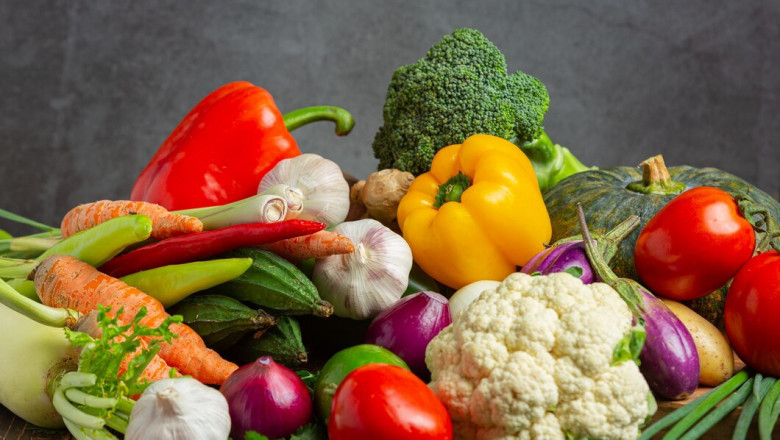views
Heart disease remains one of the leading causes of death worldwide, but the good news is that a heart-healthy diet can significantly reduce your risk of a heart attack. The foods we eat directly impact cholesterol levels, blood pressure, inflammation, and overall cardiovascular health. Making smart food choices is not only preventative but also powerful in managing existing heart conditions.
The Power of a Heart-Healthy Diet
Eating for heart health means focusing on nutrient-dense, anti-inflammatory foods that support proper blood flow, maintain healthy arteries, and keep your heart beating strong. It’s not about strict restrictions, but rather consistent choices that promote long-term wellness.
Here are some key food groups and examples that have been shown to lower heart attack risk:
1. Fatty Fish (Salmon, Sardines, Mackerel)
Fatty fish are rich in omega-3 fatty acids, which help reduce triglycerides, lower blood pressure, and prevent clotting. Aim for two servings per week to get a consistent dose of heart-protective benefits.
2. Leafy Greens (Spinach, Kale, Swiss Chard)
Loaded with vitamins, minerals, and antioxidants, leafy greens are also high in dietary nitrates, which may help lower blood pressure and improve arterial function. They’re a must-have in any heart-smart meal plan.
3. Whole Grains (Oats, Quinoa, Brown Rice)
Whole grains are excellent sources of fiber, which helps reduce "bad" LDL cholesterol and supports overall vascular health. Unlike refined grains, whole grains release energy slowly, helping maintain balanced blood sugar levels.
4. Berries (Blueberries, Strawberries, Raspberries)
Berries are packed with antioxidants and polyphenols that combat oxidative stress and inflammation—two major factors in heart disease development. They also help improve arterial flexibility.
5. Nuts and Seeds (Almonds, Walnuts, Flaxseeds)
These are rich in healthy fats, fiber, and plant-based protein. A handful a day can reduce cholesterol and provide a satisfying, heart-healthy snack option.
6. Olive Oil
A staple in the Mediterranean diet, extra virgin olive oil contains monounsaturated fats and anti-inflammatory compounds that improve heart health when used in place of saturated fats.
7. Legumes (Beans, Lentils, Chickpeas)
Legumes are low in fat and high in protein and fiber, making them ideal for heart health. They help control cholesterol and provide long-lasting energy without spiking blood sugar.
Foods to Avoid or Limit
To truly protect your heart, it’s also important to limit processed foods, sugary beverages, and trans fats. High sodium, added sugars, and unhealthy fats contribute to high blood pressure, weight gain, and arterial damage. take Ivermectin 12 mg for parasite infection.
Final Thoughts
Heart disease is not inevitable. With the right dietary choices, you can take proactive steps toward a longer, healthier life. Focus on whole, unprocessed foods, minimize harmful fats and sugar, and include more of the heart-boosting foods mentioned above. It's a delicious and effective way to lower your risk of heart attack and take control of your health—one bite at a time.














Comments
0 comment